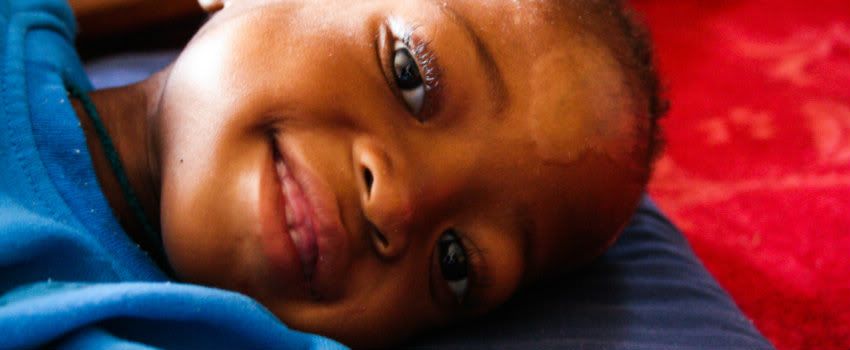The following is a guest post from Georgetown medical student Claire Daniels, who visited Mokhotlong for several weeks in April. With a focus on child health, she spent much of her time at the Mokhotlong Government Hospital, in the TTL Safe Home, and on Outreach visits, where she learned about how Basotho culture impacts child health.
As a medical student, I have had a lot
of practice reporting information, however, attempting to interpret these
findings is a much more difficult task. Our mentors are always challenging us
to reflect on problems and decide on a best course of management. During my
stay in Lesotho, I have enjoyed collecting stories and observing interactions,
eventually piecing together how the community functions in Mokhotlong and how
TTL has found its home in this community. But reflecting and
considering how to affect change has been difficult. I find myself frozen — looking
through the lens of life in the United States, when I should be looking through
the perspective of the Basotho and their needs.
One thing is learned quickly was that
the Basotho do not need much. Life here is simple in that almost every action
is geared towards survival. Still, death is a big part of their lives, especially
when one in five people suffer from HIV and the closest intensive care unit is
a bumpy 5 hours away by ambulance. The paucity of medical and nutritional
resources has been jarring, and I have found it hard to accept these realities.
In contrast, the Basotho recognize the limits of medicine every day, and carry
on in whatever ways they can.
When there is no oxygen for a child in
respiratory distress, the mom will swaddle the baby on her back to keep
him calm and focused on his breathing. When there are no medications to treat
the child’s tuberculosis, the mom will turn to a trusted home cough remedy and
will walk miles to the clinic each day to see if a shipment has arrived. Mothers
are the backbone of this community and a worthy target for development strategies.
To invest in a mother is to invest in her children.
TTL and healthcare workers understand
the mother’s central role in the household, and make it a priority to empower
these women. However, I have noticed that they face countless barriers in this
process.
First of all, communication can be difficult, as English literacy is
not commonly encountered. The physicians we have worked with at Mokhotlong
General Hospital all from the Democratic Republic of Congo and accepted their
positions without speaking any Sesotho. They recognize this weakness and have
translators available for outpatient clinics and nurses to translate during
bedside rounds. I was relieved to see that the caregiver is given a chance to
express her concerns and ask questions about the child’s health.
Secondly, the
medical team faces the challenge of explaining complex problems to caregivers
that often haven’t finished secondary school. Education is the greatest
resource that medical professionals can offer here in Lesotho. There are many
families still participating in traditional medicine and waiting to seek
medical attention until the condition is too grave to be managed in Mokhotlong.
Simple solutions empower caregivers such as the addition of the recipe and
instructions for oral rehydration therapy that have been added to the child's
health record or "bukana."
Finally, there is a disconnect between the
availability of supportive services and the implementation of these services.
In the hospital, we have made referrals to social workers, child development support,
psychiatric support, and nutritional support with TTL. It would be prudent to
assign an advocate to each child with special needs in order to help the family
navigate this complicated network.
Every day
in the hospital we identify a child who could benefit from nutritional support
by TTL. The most common cause of admission to the pediatric ward is malnutrition.
The hospital manages these children acutely with blood work, vitamin
supplementation, antibiotics, and feeding with a nutrient-dense milk based formula
they call "F75."
Even after the children start to gain weight and the edema
of their extremities disappears, they still have a long way to go. These
children may be 18 months old and only been fed breast milk or formula. They
have to learn to eat solids, use a fork, drink from a cup, and do all the other
things a healthy child their age would do. They cannot afford to stay in the
hospital for weeks or months to reach these goals — which is where the TTL Safe Home comes in.
Here the child is put on a regimented feeding schedule
and watched closely for weight gain and developmental progress. It is amazing
how quickly they develop skills when they have this newfound energy to explore.
My favorite part to watch is how the children in the safe home learn to play
and communicate with each other.
We have had
only a quick glimpse into the healing process, but through Outreach visits with
TTL and sorting through detailed records kept on these children, it is clear
that that the road to recovery is a long one-paved by many helping hands. It
seems to me that the hardest part of being a caregiver would be to admit that
you cannot provide for your child. Asking for help is not easy, but TTL has
managed to gain the trust of communities and create a culture for supporting each
other.










